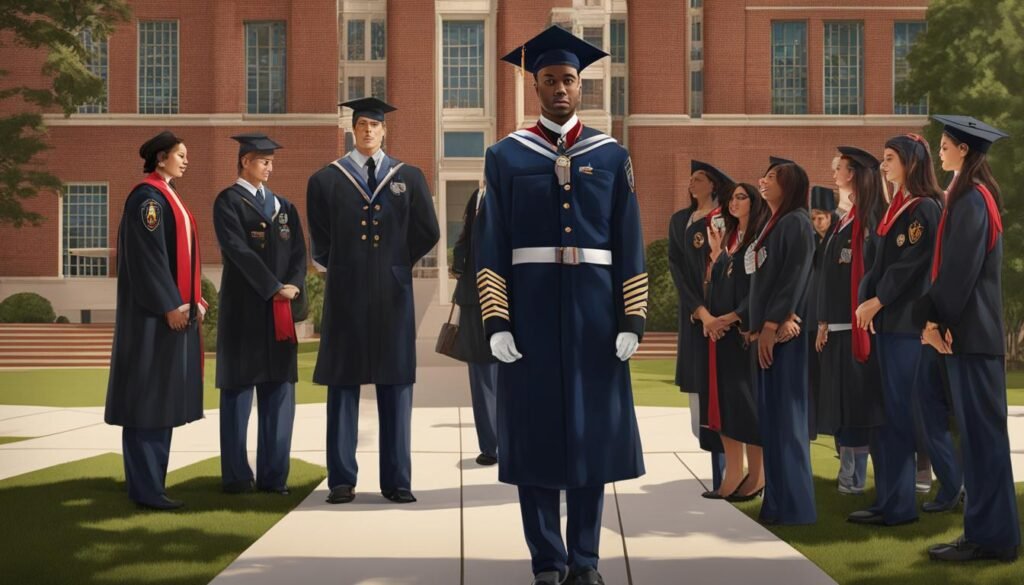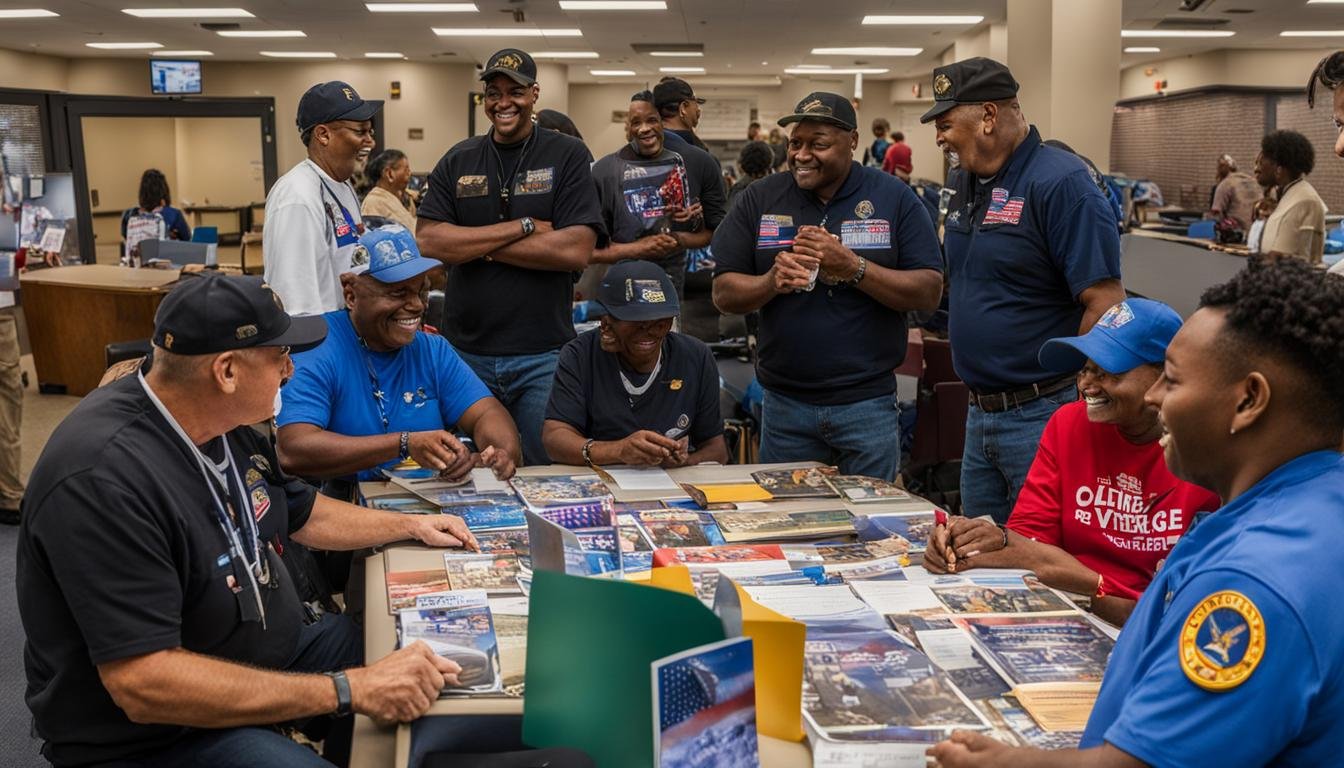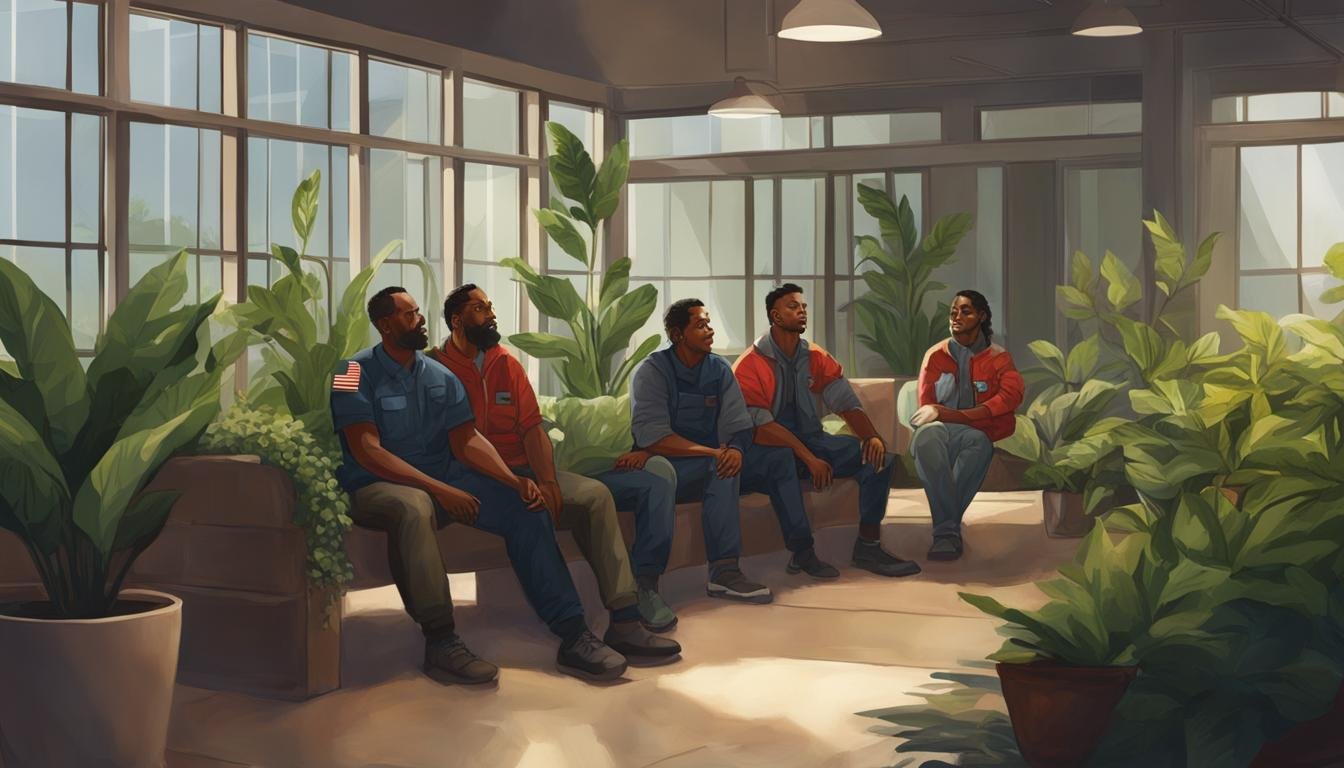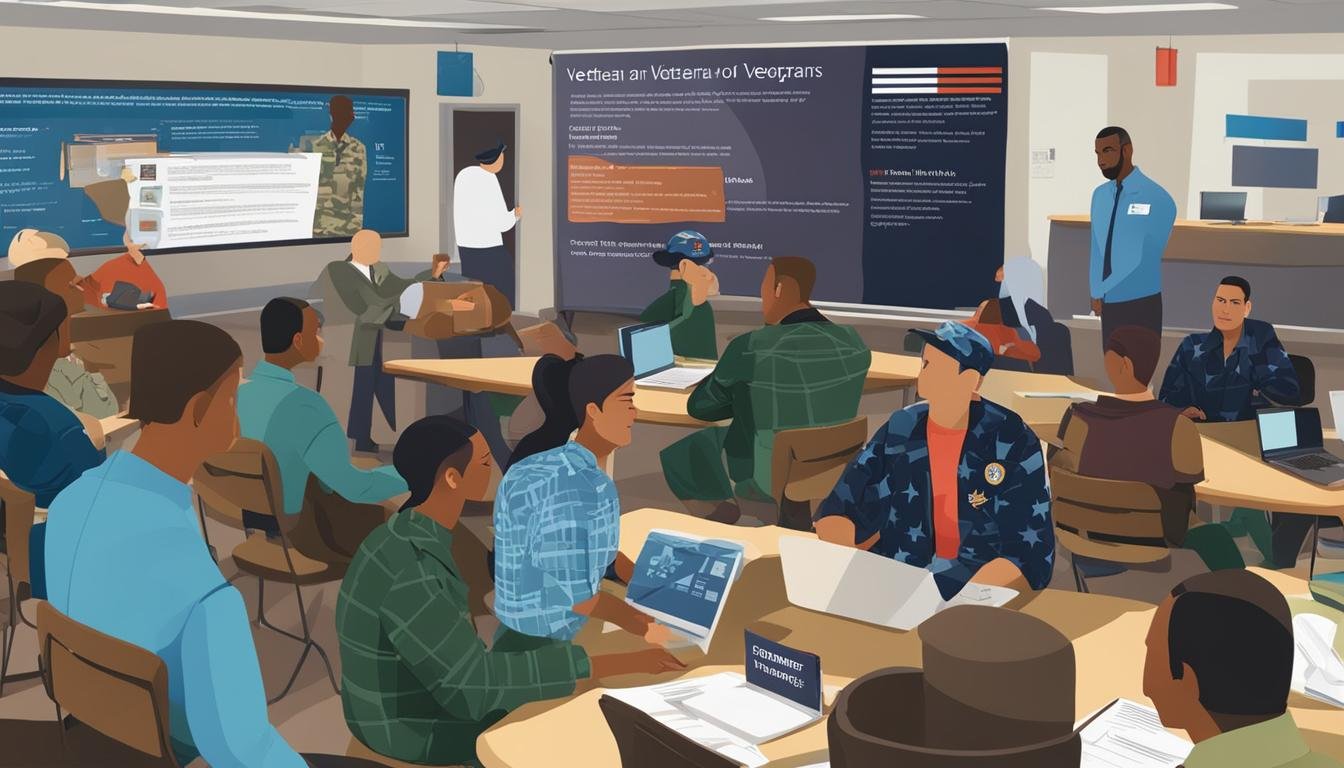When it comes to supporting student veterans in their educational journey, effective veteran services in colleges are essential. These services not only recognize and honor the sacrifices made by our veterans but also provide the comprehensive support they need to succeed in college.
Student veterans bring valuable experiences and insights to college environments. They often have unique characteristics, such as being older, married, and having children. Additionally, they may have transferable credits from prior college courses or assessments based on their military experience. In fact, over 660,000 veterans utilized educational and vocational rehabilitation benefits in 2018 alone.
It’s important to note that student veterans have proven to excel academically, with higher GPAs and retention rates compared to their non-veteran counterparts. However, they also face a range of challenges while transitioning to college. These challenges include building social connections, affordability concerns, being treated as a monolith, and coping with a loss of sense of purpose and structure.
To address these challenges and provide effective support, colleges and universities must implement best practices for veteran services. This includes having designated staff members, resource centers, and collaborations with national organizations like Student Veterans of America, Warrior-Scholar Project, and Service to School.
Key Takeaways:
- Effective veteran services are crucial for supporting the educational goals of student veterans in colleges.
- Student veterans bring valuable experiences and perspectives to college environments.
- Challenges faced by student veterans include building social connections, affordability, and loss of sense of purpose and structure.
- Colleges can improve support for student veterans by implementing best practices and collaborating with national organizations.
- By providing comprehensive support, colleges can honor and empower student veterans in their educational journey.
Understanding the Importance of Student Veterans

Student veterans bring valuable experiences and perspectives to college and university environments. Their unique backgrounds and diverse military experiences contribute to the richness of classroom discussions and enhance the overall learning environment. As a student veteran, you possess a wealth of knowledge and skills that can enrich your educational journey and benefit your fellow students.
The military student population is characterized by its diversity in age, physical abilities, family status, and education levels. This diversity brings a unique perspective to academic discussions and fosters a more inclusive learning environment. Your military and cross-cultural experiences can offer valuable insights and alternative viewpoints that enhance the educational experience for everyone.
Beyond the educational benefits, student veterans also play a vital role in driving economic development in their communities. By pursuing higher education and acquiring new skills, you expand your career opportunities and gain access to higher-paying jobs. This, in turn, contributes to the prosperity of your local community and the overall economy. Your educational pursuits have the potential to open doors to rewarding careers and financial stability.
Table: Benefits of Student Veterans
| Benefit | Description |
|---|---|
| Enhanced classroom discussions | Your unique perspectives and experiences contribute to richer academic conversations and broaden the learning experience for all students. |
| Employment opportunities | By gaining new skills through education, you improve your chances of accessing higher-paying jobs and achieving economic stability. |
| Community development | Your educational pursuits drive economic growth in your community, creating a positive impact on the local economy. |
Summarizing:
Student veterans bring valuable experiences and perspectives to college environments, enriching classroom discussions and contributing to a more inclusive learning environment. Their unique backgrounds and skills enhance the educational experience for everyone. Furthermore, student veterans’ pursuit of higher education and training has the potential to open doors to higher-paying jobs, driving economic development in their communities. The table below summarizes the benefits of student veterans.
Challenges Faced by Student Veterans

Student veterans face a range of challenges while transitioning to college. One of the main obstacles they encounter is building social connections on campus. As non-veteran students may perceive them as outsiders, it can be difficult for student veterans to find a sense of belonging and form meaningful relationships. This isolation can impact their overall college experience and hinder their academic success.
Affordability is another significant concern for student veterans. Despite federal funding and scholarships, transfer credits and expiring VA benefits can limit their eligibility for financial aid. This financial strain adds an extra layer of stress, making it more challenging for student veterans to focus on their studies and engage fully in their college education.
“As a student veteran, you may often feel like you are treated as a monolith, a stereotype that neglects the diversity of your needs and experiences. It is important for colleges to recognize and address this issue to ensure that the support and resources provided truly meet your individual needs,” says John Smith, a veteran advocate.
Transitioning out of the military can also lead to a loss of sense of purpose and structure for student veterans. The military provides a highly structured environment, where every aspect of life is regimented. Adjusting to the freedom and flexibility of college life can be overwhelming, and student veterans may struggle to find their new sense of purpose and establish a routine that supports their academic goals.
Additionally, applying GI Bill funding can be a complex process, particularly when it comes to private, graduate, or out-of-state schools. Student veterans must navigate independent agreements with Veterans Affairs, which can be time-consuming and confusing. Understanding the intricacies of utilizing GI Bill benefits and ensuring seamless financial support can pose a significant challenge for student veterans.
Table: Challenges Faced by Student Veterans
| Challenges | Impact |
|---|---|
| Building social connections | Isolation and difficulty in forming meaningful relationships |
| Affordability | Financial strain and limited eligibility for financial aid |
| Being treated as a monolith | Neglecting the individual needs and experiences of student veterans |
| Loss of sense of purpose and structure | Difficulty adjusting to the freedom and flexibility of college life |
| Applying GI Bill funding | Complex process, particularly for private, graduate, or out-of-state schools |
It is crucial for colleges and universities to address these challenges and provide comprehensive support to student veterans. By recognizing the unique needs and experiences of student veterans, institutions can implement tailored strategies and resources to ensure their success and well-being throughout their college journey.
What are the Key Features of Effective Veteran Services that Colleges Should Provide?
When it comes to colleges for veteran support, key features of effective veteran services include dedicated staff for veteran support, academic accommodations for military obligations, mental health resources, and a welcoming campus environment. It’s important for colleges to provide comprehensive support to help veterans succeed in their academic pursuits.
Conclusion
Effective veteran services in colleges are essential for providing comprehensive support to student veterans and ensuring their success in college. By understanding the unique experiences and challenges faced by student veterans, colleges and universities can offer resources and support tailored to their needs.
Creating a campus culture that values and supports student veterans is crucial. Involving them in decision-making processes and providing the necessary resources for their educational and career goals can make a significant difference in their college experience.
By improving support for student veterans, colleges can truly honor their contributions and sacrifices. Together, we can work towards improving the effectiveness of veteran services, providing comprehensive support, and ensuring college success for veterans.



